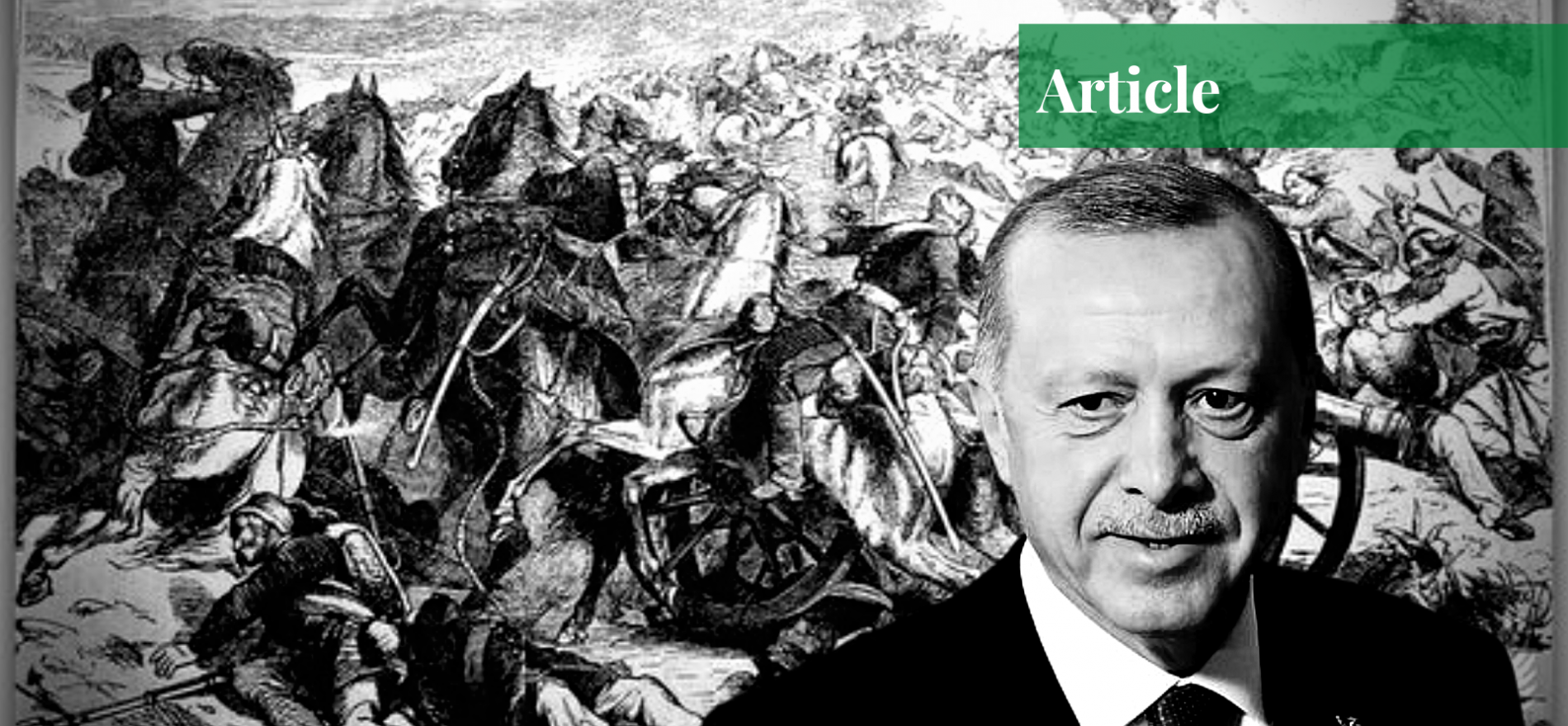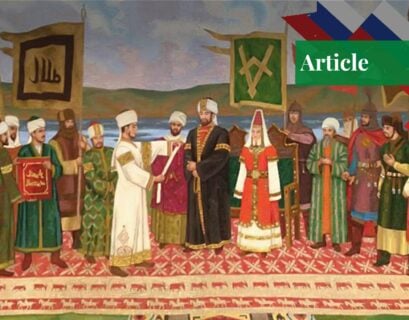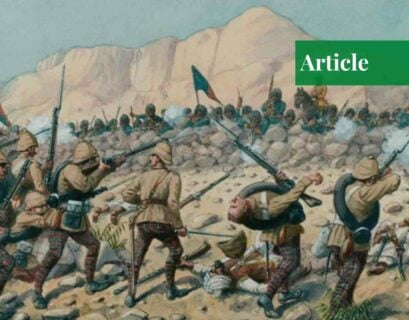Dr. Taut Bataut is a freelance writer interested in current affairs, global politics, and international relations.
The Shifting Empire
Turkey was the proud custodian of the Ottoman Empire for over 450 years, the fall of which gave way to Kemal Atatürk‘s “Modern and Secular Turkey” in 1924. This period lasted until 1950 when the first multi-party democratic elections were held in Turkey, which was followed by what can be termed as a period of “Failed Islamization” that lasted until 2003.
The next distinct period in Turkey’s history started in 2003, encompassing 18 years under Erdoğan, which I call the “Period of Rediscovery”. During this period, the Turks have strived yet again, but with greater success to rediscover their lost souls, lost to secularism. A focused and bold leader with an inspirational vision – a vision inspired by Turkey’s past – in 2019, Erdoğan became the longest-serving Turkish leader in modern history, surpassing even Atatürk.
It is this amazing yet challenging journey of rediscovery under President Erdoğan that this article focuses on. This journey of rediscovery, which was initiated even before Erdoğan, is primarily democratic and largely indigenous. It is, however, driven to a fair degree by a large segment of Muslim masses across the world who associate and pride themselves (like the majority of Turks do), with the lost glory of the Islamic Ottoman Empire.
The Turkish Pride
The Turks take pride in their race, which emerged out of a combination of Mongols and Europeans. The Turk and Mongol combination resulted in Kazakhs, while Turks and Persians combined to produce Uzbeks. Understanding the importance and glory of Turkey’s proud past is essential to understanding the “Failed Islamization” period, as well as the current “period of Turkish rediscovery”.
A romantic and nostalgic view of the Ottoman Empire continues to shape Turkey’s policies with regard to its place in the world. For 469 years, the Ottomans from Turkey dominated what are now nearly 50 sovereign countries – a quarter of the UN member states – spanning the continents of Africa, Asia, and Europe.
Dawn of Secularism
The fall of the Ottoman Empire led to the emergence of Atatürk at the end of the First World War. Atatürk who ruled Turkey for fifteen years between 1923 and 1938, secularized the country, especially the military through cultural and social engineering. He was, and continues to be, considered the savior and father of modern Turkey, as he created the Turkish Republic, successfully preserving Turkey as a country after the collapse of the Ottoman Empire.
Some historians, however, refer to Atatürk and his secularisation of the Turkish society as part of a western-inspired anti-Islam agenda aimed at the prevention of any future Islamic Empires. Notwithstanding the authenticity of this “Anti-Islam Western Agenda”, it is a historic fact that the Turks were “dictated” into secularization under Atatürk.
Islamists would, however, say, that the Turks were “diminished” into secularization. Regardless of these views, Atatürk definitely led the Turkish nation out of misery and desperation by providing them the much-needed leadership at the time to retain Turkey, as Turkey. He was thus a hero and remains so.
Kemal Atatürk and his “Kemalists” supported secularism and looked towards the West for their support. The Arabic text was replaced with Latin, and Turkey was over the next several years ‘‘Europeanised’’. A rapidly modernizing state cannot help being exclusionary. Atatürk wouldn’t have been able to increase literacy from 8% to 20% within a few years if he had been tolerant and pluralistic.
What Do the People Say?
Most ordinary Turks did not share Atatürk’s vision, not at least initially. The trend of state secularism continued until Atatürk’s death in 1938 and even thereafter under the leadership of İsmet İnönü, the country’s second president. Turkey’s Ottoman inspiration and its return towards Islam under President Erdoğan is not difficult to fathom.
According to some sources, about 80% of Turks favored being Islamic and Erdoğan was thus doing not just justice – the redress of past wrong, but also being democratic. Though Erdoğan’s illiberal and authoritarian tendencies have sparked significant opposition, his supporters insist he is merely acting within his democratic mandate.
While 80% support may be an exaggeration, but Turkey undoubtedly is a nation with a large percentage of practicing Muslims. According to a Pew Research poll of 2012, 67% of Turks claim religion as a “very important” part of their lives.
Righting the Wrongs
Shadi Hamid in his book “Islamic Exceptionalism” quotes an advisor of former Turkish PM Ahmet Davutoğlu: “If we want this normalization process to reach its maturity, we need to carry Mr. Atatürk to his grave again, close that chapter, and start a new Turkey. Secular idiot elites were just 5% of the population. The secular Republican Peoples Party (CHP) – the party of Atatürk was a mistake in our history”.
“Normalization” is a term used by the Turkish PM’s advisor, suggesting that being Islamic was clearly the natural state of Turkey and secularization was an aberration. The 67-year-old Erdoğan has been in power for nearly 18 years. Some have dubbed him as the new Atatürk, while others have called him “Sultan” Erdoğan; one who aims for Turkey to be profoundly Islamic and socially conservative, with a greater focus towards the Middle East and less towards Europe and West.
Turkey, up until some years back, was considered in the West (including the US) as having a European identity, but not anymore. It is now considered a Middle-Eastern country. With help from German and French leaders who blocked Turkey’s European Union (EU) aspirations, Erdoğan has successfully engineered Turkey’s exit from its European identity.
Sonar Cagaptay in his recent book “Erdogan’s Empire” says; “The Kemalists’ vision of Turkey as a modern republic guided their nation-building agenda at home and their foreign policy agenda abroad. They accepted that the Ottoman Empire was over and that it was no longer coming back. Atatürk tried to shape Turkey to be great as a republic facing Europe. In contrast, a vision of imperial restoration shapes Erdogan’s domestic and foreign policy”.
Erdoğan’s Vision
Erdoğan wants Turkey to be a stand-alone power. Under Erdoğan, Turkey has taken the leadership role in Islamic causes and has been the voice of a large mass of Muslims of various countries, if not the governments of those countries themselves. He has spoken aggressively, eloquently, and repeatedly in support of Muslims across the world.
He has raised his voice in support of Palestinians, Kashmiris, Rohingyas, and several other causes. In September 2017, he accused Myanmar of genocide against Rohingya Muslims. According to some, Erdoğan is successfully undoing Atatürk’s legacy by “Alternative Engineering”. Following the tradition of the Ottoman sultans – who built imperial mosques to adorn the seven hills of Istanbul’s historic old city – Erdoğan has constructed one of his own, that is, The Camlica Mosque.
The mosque embodies Ottoman architecture and has six minarets to match those of the famous seventeenth-century Blue Mosque. Istanbul, with all its splendor and beauty, seems to have been created as the capital of the world. Erdoğan has also focused on the Hagia Sophia; originally built as a Christian Orthodox Church, Hagia Sophia was transformed into a mosque by the Ottomans upon their conquest of Constantinople (Istanbul) in 1453.
In 1934, it was declared a museum by the secularist Kemal Atatürk. President Erdoğan later converted Hagia Sophia back into a mosque, in line with his efforts towards Islamization. The Turkish Armed Forces (TAF) which had been secularized to the extreme, have since been defanged by Erdoğan with the help of the Fethullah Gülen movement – his ally at the time.
Minor Setbacks
In 2011, the military’s top brass (under pressure from Erdoğan and Gülen) resigned en-masse. The post-resignation environment led to a split between Erdoğan and Gülen. This resulted in a political confrontation that in some ways culminated in the 2016 failed military coup against Erdoğan, in which Gülen-aligned officers played a significant role.
Despite opposition from a liberal fringe minority, Turkey for now seems to be well on its way to Islamization. With President Erdoğan firmly in control – especially after the failed coup of 2016, the referendum of 2017, and the elections of June 2018 – Turkey is geared towards de-secularization.
Unlike some of his predecessors, President Erdoğan went about the Islamization process in a planned manner. Shadi Hamid, in his book “Islamic Exceptionalism”, calls the Turkish Islamists “Gradualists”, due to their gradual creeping approach, rather than a revolutionary one. Erdoğan and his group were careful not to upset the establishment and the TAF as they could have been easily overthrown.
There were coups in the past in 1960, 1971, 1980, and 1997. In the Period of “Failed Islamization” between 1950 and 2002, some Turkish leaders tried to nudge Turkey towards Islamization but failed, resulting in heightened tensions with the secular establishment leading to at least four coups. Erdoğan, therefore, had to be careful, and careful he was. He needed democratic support which he had. He needed greater power which he set out to achieve.
Since 1923, the TAF had been secularized to such an extent that even growing a beard was disallowed because of its Islamic connotations. The authorities were so strict in this regard that even a single day’s facial hair resulted in the refusal of food to officers of the TAF in their messes. This ban on the male beard, and on wearing the headscarf by women has since been relaxed under President Erdoğan.
Despite the institutional secularization, individually in their hearts, a large number of military personnel ached for the lost glory of the Ottoman time and had a desire to return to the same. However, they were constrained to express and act on their true feelings. This was a dangerous situation that was not only divisive and hurtful but gnawed at the collective soul of Turkey.
This was rectified to some extent by the progressive purging of the secular top brass of the TAF by President Erdoğan. In his earlier days, Erdoğan had been the Mayor of Istanbul from 1994 to 1998 when he was arrested by the Kemalist establishment and banned from politics for 5 years for reciting a religiously charged poem: “The mosques are our barracks / the domes our helmets / the minaret our bayonet / and the believers our soldiers”.
Rediscovering Its Soul
Atatürk, in his time, had followed the western Christian model of separation of state from the church. In fact, it was not just the separation of religion from politics, but affirming the supremacy of the state and ensuring that religion did not obstruct the state’s agenda. Islam’s actual spirit is different and distinctive in how it relates to politics.
Religion cannot be pushed into the private realm, not at least indefinitely. Thus Turkey, having tried several times since 1960, is now, under Erdoğan, progressively rediscovering its Islamic soul. Erdoğan’s challenges remain; not as much from the liberal fringe minority, but from the external support that this minority continues to get from the West; a West which remains alarmed at any notion, howsoever remote, of return to any form of Turkey’s past glory.
This form may not necessarily be in the shape of an Empire; even a leadership role aimed at greater Islamic unity with a stronger voice and greater resonance is alarming enough. This is substantiated by Lord Curzon’s remarks in the House of Commons in 1923, where he was reported to have said; “We must put an end to anything which brings about any Islamic unity between the sons of Muslims. The situation now is that Turkey is dead and will never rise again, because we have destroyed its moral strength, the Caliphate and Islam”.
The big question is: has the Turkish polity crossed that rubicon where the threat from the secular establishment has eroded? The answer, in my opinion, is no. It hasn’t yet, but it seems to be well and truly on its way. If “Sultan” Erdoğan continues in power for another 5–10 years, secularism will have been largely buried and the Turkish people would have a system beating in rhythm with their hearts – and driven by their re-energized souls.
Will such a system outlast President Recep Tayyip Erdoğan? If over 450 years of Ottoman rule can be overturned and replaced by a secularist Turkish Republic (albeit after a World War), Erdoğan’s current 18, or for that matter 25 years (if he stays in power until then) will always remain vulnerable to a foreign-inspired reversal. The final determinant, however, will be the will of the Turkish people and the magnitude of their desire to preserve their “rediscovered souls”.
If you want to submit your articles and/or research papers, please check the Submissions page.
The views and opinions expressed in this article/paper are the author’s own and do not necessarily reflect the editorial position of Paradigm Shift.


















